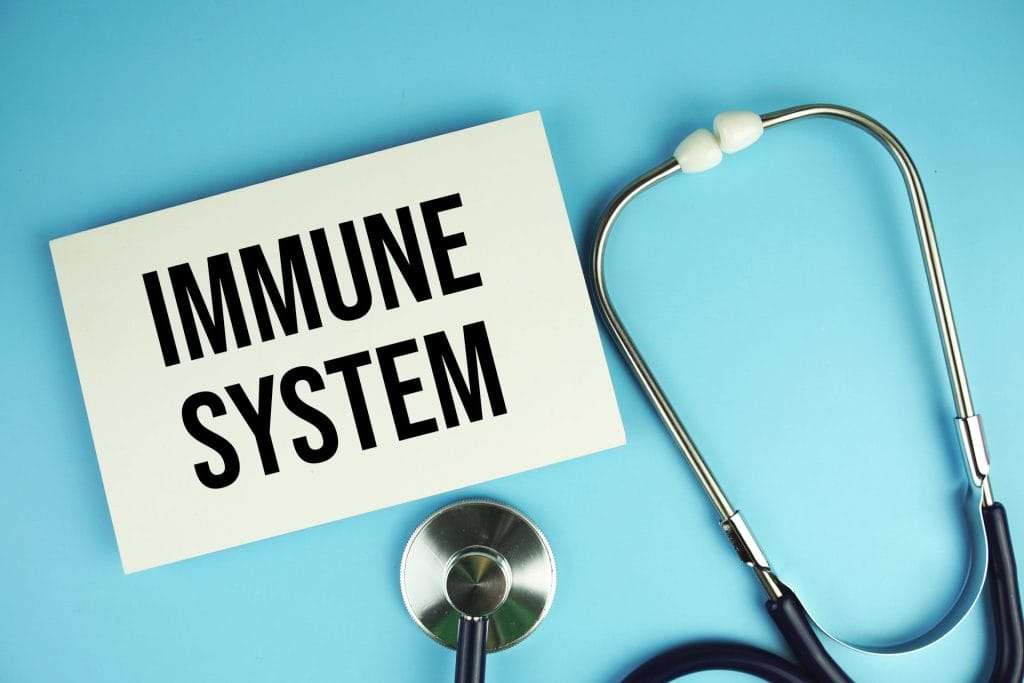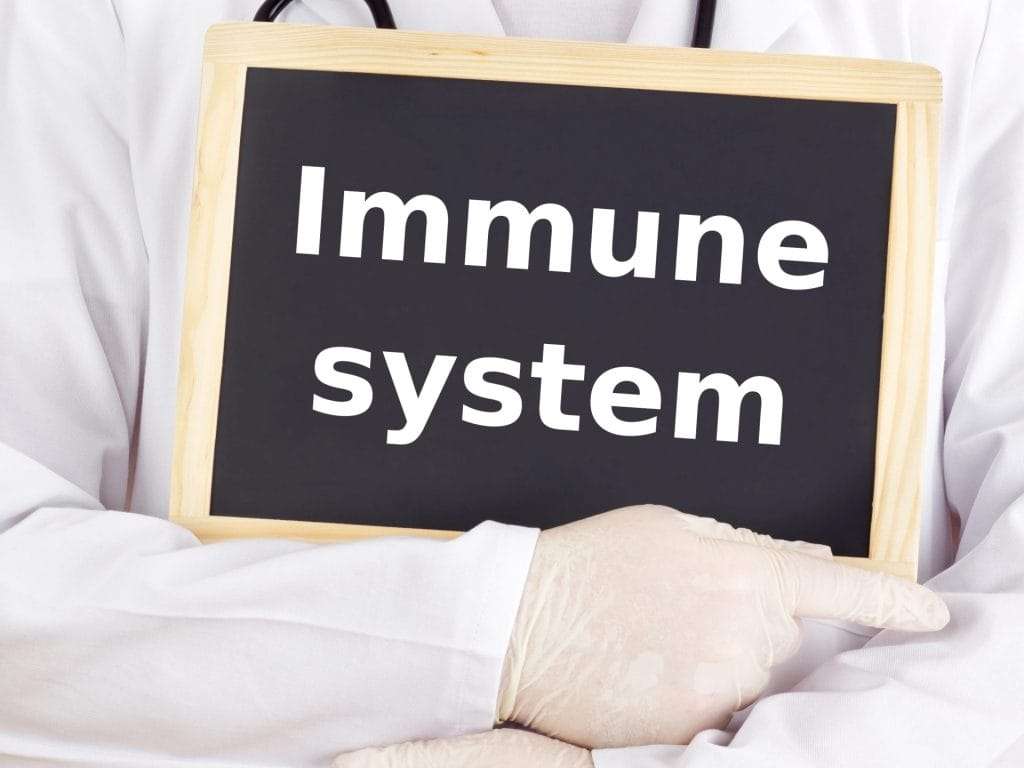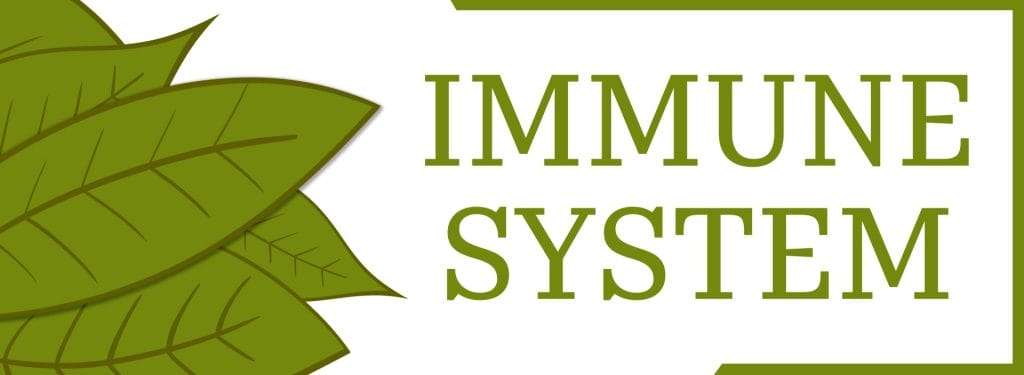Maintaining a robust immune system has become more critical than ever. Your immune system serves as your body’s natural defense mechanism, protecting you from harmful pathogens, viruses, and bacteria that could compromise your health. While lifestyle factors like adequate sleep, regular exercise, and stress management play crucial roles in immune function, nutrition remains the cornerstone of immune system support (Calder, 2013).
At The Vitamin Shots, we understand the vital role that specific nutrients play in strengthening your body’s natural defenses. This comprehensive guide explores the essential nutrients your immune system needs to function optimally, helping you make informed decisions about your nutritional supplementation and dietary choices.

The Science Behind Immune System Nutrition
Your immune system is a complex network of cells, tissues, and organs that work together to defend your body against foreign invaders. This sophisticated defense system requires a steady supply of specific nutrients to maintain its effectiveness. Research consistently demonstrates that nutritional deficiencies can significantly compromise immune function, making you more susceptible to infections and illnesses (Gombart et al., 2020).
The relationship between nutrition and immunity is bidirectional, not only do nutrients support immune function, but immune responses also affect nutrient metabolism and requirements. During times of illness or stress, your body’s nutritional needs increase substantially, making adequate nutrient intake even more crucial for recovery and ongoing protection (Maggini et al., 2018).
Top Essential Nutrients for Immune System Support
Vitamin C – The Immune System Champion
Vitamin C stands as one of the most extensively researched nutrients for immune support. This powerful antioxidant plays multiple roles in immune function, from supporting the production and function of white blood cells to protecting these cells from oxidative damage. Adequate intakes of vitamin C ameliorate symptoms and shorten the duration of respiratory tract infections including the common cold (Hemilä & Chalker, 2013).
The water-soluble nature of vitamin C means your body cannot store it effectively, making regular intake essential. Beyond its direct immune benefits, vitamin C supports collagen synthesis, which is crucial for maintaining the integrity of your skin and mucous membranes – your body’s first line of defense against pathogens (Wintergerst et al., 2006).
Recommended Daily Intake: Adults should aim for 75-90mg daily, though some research suggests higher doses (up to 1000mg) may provide additional immune benefits during times of stress or illness.
Best Food Sources: Citrus fruits, bell peppers, strawberries, kiwi fruit, broccoli, and Brussels sprouts are excellent natural sources of vitamin C.
Vitamin D – The Sunshine Vitamin for Immune Regulation
Often called the “sunshine vitamin,” vitamin D has gained significant attention for its immune-modulating properties. This unique vitamin functions more like a hormone in your body, influencing the expression of hundreds of genes involved in immune function. Vitamin D has also been researched in connection with COVID-19 because of its effect on the immune system (Grant et al., 2020).
Vitamin D deficiency is increasingly common, particularly in northern climates or among individuals with limited sun exposure. This deficiency has been linked to increased susceptibility to respiratory infections and autoimmune conditions. Vitamin D helps regulate both innate and adaptive immune responses, ensuring your immune system responds appropriately to threats without becoming overactive (Aranow, 2011).
Recommended Daily Intake: Most adults need 1000-2000 IU daily, though individual requirements may vary based on blood levels, geographic location, and other factors.
Best Sources: While sunlight exposure remains the most natural way to produce vitamin D, fatty fish, fortified dairy products, and high-quality supplements from sources like The Vitamin Shots can help maintain adequate levels.
Zinc – The Immune System Mineral
Zinc is perhaps the most critical mineral for immune function, involved in numerous aspects of cellular immunity. This essential trace element supports the development and activation of T-lymphocytes, crucial cells in your adaptive immune response. Zinc reduces the incidence and improves the outcome of pneumonia, malaria, and diarrhea infections (Shankar & Prasad, 1998).
Zinc deficiency is one of the most common micronutrient deficiencies worldwide, particularly affecting children, elderly adults, and vegetarians. Even mild zinc deficiency can significantly impair immune function, making adequate intake essential for optimal health (Wessels et al., 2017).
Recommended Daily Intake: Adults typically need 8-11mg daily, with higher requirements during illness or periods of increased stress.
Best Food Sources: Oysters, beef, pumpkin seeds, chickpeas, and cashews provide excellent zinc content.
Selenium – The Antioxidant Trace Element
Selenium plays a crucial role in immune function through its incorporation into selenoproteins, which have powerful antioxidant properties. Dietary selenium, mainly through its incorporation into selenoproteins, plays an important role in inflammation and immunity (Arthur et al., 2003). This trace element helps protect immune cells from oxidative damage while supporting proper immune cell function.
Selenium deficiency can lead to increased susceptibility to viral infections and may contribute to the development of autoimmune conditions. The mineral is particularly important for proper T-cell function and the production of antibodies.
Recommended Daily Intake: Adults need approximately 55 micrograms daily, with Brazil nuts being one of the richest food sources available.
Best Food Sources: Brazil nuts, seafood, organ meats, and whole grains grown in selenium-rich soil provide excellent selenium content.
Omega-3 Fatty Acids – Essential Fats for Immune Balance
Omega-3 fatty acids, particularly EPA (eicosapentaenoic acid) and DHA (docosahexaenoic acid), play crucial roles in immune system regulation. Key dietary components such as vitamins C, D, E, zinc, selenium and the omega 3 fatty acids have well-established immunomodulatory effects, with benefits in infectious disease (Rondanelli et al., 2018). These essential fats help resolve inflammation, support immune cell membrane integrity, and promote the production of specialized pro-resolving mediators that help end inflammatory responses appropriately (Calder, 2020).
The modern Western diet often provides excessive omega-6 fatty acids while being deficient in omega-3s, creating an inflammatory imbalance that can compromise immune function. Correcting this balance through increased omega-3 intake can significantly improve immune response and reduce chronic inflammation.
Recommended Daily Intake: Aim for 250-500mg of combined EPA and DHA daily, with higher amounts potentially beneficial for individuals with inflammatory conditions.
Best Food Sources: Fatty fish like salmon, mackerel, and sardines provide the highest concentrations of omega-3 fatty acids.

Additional Immune-Supporting Nutrients
Vitamin E – The Membrane Protector
Vitamin E serves as a powerful antioxidant that protects cell membranes from oxidative damage. This fat-soluble vitamin is particularly important for maintaining the integrity of immune cell membranes, ensuring these cells can function properly. Vitamin E also supports T-cell function and helps maintain the effectiveness of other antioxidants in your body (Lewis et al., 2019).
Best Sources: Nuts, seeds, vegetable oils, and leafy green vegetables provide excellent vitamin E content.
Iron – The Oxygen Carrier
Iron plays essential roles in immune function, particularly in the proliferation and maturation of immune cells. Iron deficiency can significantly impair immune response, making individuals more susceptible to infections. However, excess iron can also be problematic, as pathogens can use iron for their own growth (Cherayil, 2010).
Best Sources: Lean meats, poultry, fish, legumes, and fortified cereals provide bioavailable iron.
B-Complex Vitamins – The Energy Supporters
The B-complex vitamins, including B6, B12, and folate, support immune function through their roles in DNA synthesis, cell division, and energy metabolism. These vitamins are particularly important for the rapid proliferation of immune cells during an immune response (Wintergerst et al., 2006).
Best Sources: Whole grains, meat, poultry, fish, eggs, and leafy green vegetables provide comprehensive B-vitamin support.
Glam Dust
Radiant Skin – Luscious Hair – Pristine Nails
Vitamin Shots
The ultimate brain and body supplements
Vitamin Sprinkles
The ultimate brain and body supplements
Creating an Immune-Supporting Nutrition Plan
Food-First Approach
While supplements can play a valuable role in immune support, obtaining nutrients from whole foods should be your primary strategy. Whole foods provide nutrients in forms that are often more bioavailable and come with additional beneficial compounds like phytonutrients and fiber that support overall health.
Focus on incorporating a variety of colorful fruits and vegetables, lean proteins, whole grains, nuts, and seeds into your daily diet. This diverse approach ensures you’re getting a wide spectrum of immune-supporting nutrients along with other health-promoting compounds.
Strategic Supplementation
Even with a balanced diet, certain nutrients may be difficult to obtain in optimal amounts through food alone. Vitamin D, omega-3 fatty acids, and certain minerals like zinc may benefit from supplementation, particularly during times of increased need or when dietary intake is insufficient.
When choosing supplements, quality matters significantly. Look for third-party tested products from reputable sources like The Vitamin Shots to ensure you’re getting pure, potent nutrients without harmful contaminants.

Timing and Dosing Considerations
The timing and dosing of immune-supporting nutrients can impact their effectiveness. Fat-soluble vitamins (A, D, E, K) are best absorbed with meals containing healthy fats, while water-soluble vitamins (C and B-complex) can be taken throughout the day.
Consider spreading vitamin C intake throughout the day, as your body can only absorb limited amounts at one time. For zinc, avoid taking it with calcium or iron supplements, as these minerals can interfere with zinc absorption.
Lifestyle Factors That Enhance Nutrient Absorption
Gut Health and Immune Function
Your gut health directly impacts both nutrient absorption and immune function, as approximately 70% of your immune system is located in your gut-associated lymphoid tissue. A healthy gut microbiome supports nutrient absorption while also training your immune system to respond appropriately to various stimuli.
Supporting gut health through probiotic foods, prebiotic fibers, and avoiding excessive processed foods can significantly enhance your body’s ability to utilize immune-supporting nutrients effectively.
Sleep and Stress Management
Adequate sleep and effective stress management are crucial for maximizing the benefits of immune-supporting nutrients. Chronic stress and poor sleep can increase nutrient requirements while also impairing immune function, creating a cycle that can compromise your health.
Aim for 7-9 hours of quality sleep nightly and incorporate stress-reduction techniques like meditation, regular exercise, or other relaxation practices into your routine.
Special Considerations for Different Life Stages
Children and Adolescents
Growing children and teenagers have increased nutritional needs to support both growth and immune system development. Focus on nutrient-dense foods and consider age-appropriate supplementation when dietary intake may be insufficient (Maggini et al., 2018).
Vitamin D and omega-3 fatty acids are particularly important for developing immune systems, while ensuring adequate protein intake supports the production of immune proteins and antibodies.
Older Adults
Aging is associated with changes in immune function, often called immunosenescence, which can increase susceptibility to infections and reduce vaccine effectiveness. Older adults may benefit from higher intakes of certain immune-supporting nutrients, particularly vitamin D, zinc, and antioxidants (Maggini et al., 2018).
Digestive changes that often occur with aging can also affect nutrient absorption, making supplementation more important for this population.
Pregnant and Breastfeeding Women
Pregnancy and breastfeeding significantly increase nutritional needs, including those for immune-supporting nutrients. Adequate nutrition during these periods not only supports maternal immune function but also helps establish the developing baby’s immune system.
Focus on folate, iron, omega-3 fatty acids, and vitamin D during these critical periods, working with healthcare providers to ensure optimal intake.
Glam Dust
Radiant Skin – Luscious Hair – Pristine Nails
Vitamin Shots
The ultimate brain and body supplements
Vitamin Sprinkles
The ultimate brain and body supplements
Warning Signs of Nutrient Deficiencies
Recognizing Immune-Related Nutrient Deficiencies
Several signs may indicate that your immune system isn’t getting the nutritional support it needs. Frequent infections, slow wound healing, persistent fatigue, and prolonged recovery from illnesses can all signal potential nutrient deficiencies.
Other warning signs include brittle nails, poor skin health, excessive bruising, and mood changes. If you experience these symptoms, consider consulting with a healthcare provider to assess your nutritional status.
Laboratory Testing for Nutrient Status
Blood tests can provide valuable insights into your nutritional status, particularly for nutrients like vitamin D, B12, iron, and zinc. Regular monitoring can help identify deficiencies before they become severe enough to compromise immune function.
Work with your healthcare provider to determine which tests might be appropriate based on your individual risk factors, dietary patterns, and health history.
The Future of Immune Nutrition
Emerging Research and Nutrients
Scientific research continues to identify new connections between nutrition and immune function. Emerging areas of interest include the role of specific phytonutrients, the importance of nutrient timing, and the interactions between different nutrients in supporting immune health.
Personalized nutrition, based on individual genetic variations and health status, may become increasingly important in optimizing immune function through targeted nutritional interventions.

Integration with Modern Healthcare
The integration of nutritional approaches with conventional medical care is becoming increasingly recognized as essential for optimal health outcomes. Healthcare providers are beginning to incorporate nutritional assessments and recommendations as standard parts of preventive care.
This integrated approach recognizes that while nutrition cannot replace medical treatment when illness occurs, it plays a crucial role in prevention and can support recovery when used alongside appropriate medical interventions.
Comprehensive Guide to Fighting Flu Season: Science-Based Immune Support Strategies
As flu season approaches and infectious disease threats intensify globally, understanding how to boost your immune system becomes crucial for maintaining optimal health. Located at the forefront of nutritional science, The Vitamin Shots recognizes that dietary supplements and certain vitamins play a vital role in immune function, helping healthy adults develop a strong immune system capable of fighting off infection during challenging flu season months (Grant et al., 2020).
The key to keeping your immune system healthy lies in understanding how specific nutrients strengthen your immune system and improve immune response capabilities. While many supplements on the market promise immune-boosting properties, the most effective approach combines foods to boost immunity with targeted supplementation, including vitamin D supplements, zinc supplements, and elderberry supplements that have demonstrated significant effects on immune function (Rondanelli et al., 2018).
A comprehensive immune support strategy recognizes that certain foods and supplements work synergistically to help support body’s immune response and fight off infection more effectively. The Food and Nutrition Board emphasizes that immune system boosters work best when derived from a wide variety of foods rather than relying solely on supplements, though vitamin and mineral supplementation providing essential nutrients can help boost immune function when dietary intake falls short.
Understanding which foods contain immune-supporting nutrients versus foods that may weaken your immune system helps optimize your nutritional approach to immune health. While specific foods might capture attention as top immune system boosters, the reality is that keeping your immune system strong requires consistent consumption of foods you eat daily, complemented by targeted supplement strategies (Calder, 2013).
Conclusion
Supporting your immune system through proper nutrition is one of the most effective strategies for maintaining optimal health and resilience against illness. The essential nutrients discussed in this guide – vitamin C, vitamin D, zinc, selenium, omega-3 fatty acids, and others – work synergistically to support various aspects of immune function (Gombart et al., 2020).
Remember that consistency is key when it comes to immune nutrition. Rather than waiting until you feel unwell to focus on your nutritional intake, make immune-supporting nutrients a regular part of your daily routine. Whether through a carefully planned diet, strategic supplementation, or a combination of both, investing in your immune nutrition is investing in your long-term health and well-being.
For high-quality supplements to support your immune system journey, visit The Vitamin Shots for scientifically-formulated products designed to meet your nutritional needs. With the right nutritional foundation, you can help ensure your immune system has everything it needs to protect and support your health effectively.
Frequently Asked Questions (FAQs)
1. How long does it take for immune-supporting nutrients to show effects?
The timeline for seeing benefits from immune-supporting nutrients varies depending on several factors, including your current nutritional status, the specific nutrient, and your overall health. Water-soluble vitamins like vitamin C can begin supporting immune function within hours to days, while fat-soluble vitamins like vitamin D may take several weeks to months to reach optimal blood levels (Aranow, 2011). Most people notice improvements in their overall energy and resilience within 2-4 weeks of consistent supplementation with a comprehensive immune support regimen. However, correcting significant deficiencies may take 2-3 months or longer. For the best results, focus on consistency rather than expecting immediate dramatic changes, and consider working with a healthcare provider to monitor your progress.
2. Can I get all immune-supporting nutrients from food alone, or do I need supplements?
While a well-balanced, varied diet can provide many immune-supporting nutrients, obtaining optimal amounts of all nutrients through food alone can be challenging. Factors such as soil depletion, food processing, limited sun exposure (for vitamin D), and dietary restrictions can make it difficult to achieve ideal nutrient levels (Calder, 2013). Nutrients like vitamin D and omega-3 fatty acids are particularly difficult to obtain in sufficient quantities from diet alone for many people. A combination approach works best: focus on nutrient-dense whole foods as your foundation, then use high-quality supplements from trusted sources like The Vitamin Shots to fill any gaps. This strategy ensures you maintain optimal nutrient levels year-round while still benefiting from the additional compounds found in whole foods.
3. Are there any risks associated with taking too much of these immune-supporting nutrients?
Yes, while these nutrients are essential for immune function, excessive intake can potentially cause adverse effects. Fat-soluble vitamins (A, D, E, K) can accumulate in body tissues and cause toxicity if taken in very high doses over extended periods. Vitamin D toxicity can lead to calcium imbalances, while excessive vitamin A can cause liver problems. Even water-soluble vitamins like vitamin C can cause digestive upset in very high doses (Wintergerst et al., 2006). Minerals like zinc and iron can interfere with the absorption of other nutrients and cause toxicity symptoms. Selenium toxicity, though rare, can cause hair loss and neurological symptoms. The key is staying within recommended dosage ranges and working with healthcare providers, especially if you have underlying health conditions or take medications. Quality supplements with appropriate dosing, like those available at The Vitamin Shots (https://thevitaminshots.com), help minimize these risks.
4. How do I know if my current diet is providing adequate immune support nutrients?
Several indicators can help you assess whether your diet is providing adequate immune support. Frequent illnesses (more than 2-3 colds per year), slow wound healing, persistent fatigue, brittle nails, poor skin health, and prolonged recovery from exercise or illness may suggest nutritional gaps (Gombart et al., 2020). A food diary can help you evaluate your nutrient intake – aim for 5-9 servings of colorful fruits and vegetables daily, include fatty fish 2-3 times per week, consume nuts and seeds regularly, and ensure adequate protein intake. However, the most accurate assessment comes from laboratory testing of key nutrients like vitamin D, B12, iron, and zinc levels. Many people benefit from working with a registered dietitian or healthcare provider to analyze their diet and determine if supplementation would be beneficial. Remember that even healthy eaters may have gaps due to factors like stress, poor sleep, or increased nutritional needs during certain life stages.
5. What’s the best way to time immune-supporting supplements throughout the day?
Proper timing can significantly enhance the absorption and effectiveness of immune-supporting supplements. Take fat-soluble vitamins (A, D, E, K) with meals containing healthy fats for optimal absorption – breakfast or lunch often works well. Vitamin C is water-soluble and can be taken throughout the day, but splitting doses (morning and evening) may be more effective than taking large amounts at once (Hemilä & Chalker, 2013). Zinc is best absorbed on an empty stomach but can cause nausea, so taking it with a small snack is often preferable. Avoid taking zinc with calcium, iron, or high-fiber foods as these can interfere with absorption (Wessels et al., 2017). Omega-3 supplements are best taken with meals to reduce any fishy aftertaste and improve absorption. B-complex vitamins can be taken in the morning as they support energy metabolism. Iron should be taken on an empty stomach with vitamin C to enhance absorption, but away from zinc, calcium, and coffee. Consider spacing different supplements throughout the day rather than taking everything at once, and maintain consistency in your timing for the best results.
References
Aranow, C. (2011). Vitamin D and the immune system. Journal of Investigative Medicine, 59(6), 881-886.
Arthur, J. R., McKenzie, R. C., & Beckett, G. J. (2003). Selenium in the immune system. Journal of Nutrition, 133(5), 1457S-1459S.
Calder, P. C. (2013). Feeding the immune system. Proceedings of the Nutrition Society, 72(3), 299-309.
Calder, P. C. (2020). Omega-3 fatty acids and inflammatory processes: from molecules to man. Biochemical Society Transactions, 45(5), 1105-1115.
Cherayil, B. J. (2010). Iron and immunity: immunological consequences of iron deficiency and overload. Archivum Immunologiae et Therapiae Experimentalis, 58(6), 407-415.
Gombart, A. F., Pierre, A., & Maggini, S. (2020). A review of micronutrients and the immune system–working in harmony to reduce the risk of infection. Nutrients, 12(1), 236.
Grant, W. B., Lahore, H., McDonnell, S. L., Baggerly, C. A., French, C. B., Aliano, J. L., & Bhattoa, H. P. (2020). Evidence that vitamin D supplementation could reduce risk of influenza and COVID-19 infections and deaths. Nutrients, 12(4), 988.
Hemilä, H., & Chalker, E. (2013). Vitamin C for preventing and treating the common cold. Cochrane Database of Systematic Reviews, (1).
Lewis, E. D., Meydani, S. N., & Wu, D. (2019). Regulatory role of vitamin E in the immune system and inflammation. IUBMB Life, 71(4), 487-494.
Maggini, S., Pierre, A., & Calder, P. C. (2018). Immune function and micronutrient requirements change over the life course. Nutrients, 10(10), 1531.
Rondanelli, M., Miccono, A., Lamburghini, S., Avanzato, I., Riva, A., Allegrini, P., … & Perna, S. (2018). Self-care for common colds: the pivotal role of vitamin D, vitamin C, zinc, and Echinacea in three main immune interactive clusters (physical barriers, innate and adaptive immunity) involved during an episode of common colds—practical advice on dosages and on the time to take these nutrients/botanicals in order to prevent or treat common colds. Evidence-Based Complementary and Alternative Medicine, 2018.
Shankar, A. H., & Prasad, A. S. (1998). Zinc and immune function: the biological basis of altered resistance to infection. The American Journal of Clinical Nutrition, 68(2), 447S-463S.
Wessels, I., Maywald, M., & Rink, L. (2017). Zinc as a gatekeeper of immune function. Nutrients, 9(12), 1286.
Wintergerst, E. S., Maggini, S., & Hornig, D. H. (2006). Immune-enhancing role of vitamin C and zinc and effect on clinical conditions. Annals of Nutrition and Metabolism, 50(2), 85-


.png)
